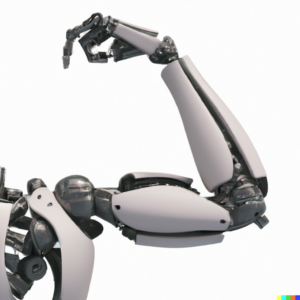Thales has announced the launch of a new AI platform aimed at the defense sector. The company describes its “cortAIx” offering as an “AI accelerator” that will help armed forces, aircraft makers, and critical infrastructure operators to better leverage the massive data streams that are becoming available to them.

The platform comprises three core elements. The cortAIx Lab, based in the Saclay research hub in Paris, provides the platform’s AI research. The cortAIx Factory is, in Thales’ words, “designed to speed up the classification and industrialisation of AI development tools and use cases for system data.” And finally cortAIx Sensors bring the platform’s AI capabilities out into the field by actually collecting data.
The sensors take a wide range of forms, from sonar to radio to optronics. Thales’ Talios Pod, for example, collects images in air reconnaissance and targeting missions, while its AirMaster surveillance radar system is designed to collect data from maritime aircraft patrols. The company says that as its platform continues to develop, it will streamline the coordination of multi-drone and multi-robot systems.
Thales is, of course, also known for having advanced biometric sensors in its arsenal. The sophistication of its facial recognition technology, for example, has been validated in independent testing programs including the Department of Homeland Security’s Biometric Technology Rally; and Thales is a major vendor in the provision of biometric border screen systems such as those being deployed for the European Union’s Entry/Exit System.
The company’s cortAIx announcement did not specifically mention Thales’ biometric technologies, but it did note that Thales “has been incorporating AI into its critical systems for the last ten years, in order to enable its customers to gain an edge and to become more resilient in the face of a deluge of data, threats and information.”
On that note, Thales says it has amassed a global team of more than 600 AI experts, about 100 doctoral students, and “a top-tier network of industry, start-up and academic partners”. It also has about 5,800 cybersecurity experts among its ranks, as well as a “Friendly Hacking” dedicated to red-teaming its AI solutions.
–
April 1, 2024 – by Alex Perala








Follow Us